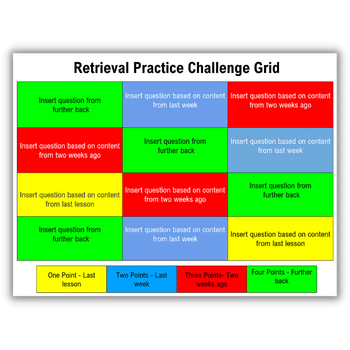Great teaching practices must be fully understood before they’re applied in the classroom

In the absence of sufficient understanding and interrogation on the part of practitioners, even the most well evidenced teaching approaches can mutate unpredictably and end up doing more harm than good, says David Didau…

- by David Didau

In biology, a lethal mutation is a genetic mutation caused by an unfortunate combination of genes.
Individually, these genes would be harmless, but when combined, their expression results in the premature death of the organism carrying them.
In education, the term ‘lethal mutation’ can sometimes be used to describe the phenomenon of perfectly sensible approaches to teaching being misunderstood or misapplied, to the point that they become harmful to students’ outcomes.
Take, for instance, the sorry tale of Assessment for Learning. Properly understood, the careful application of formative assessment, combined with responsive approaches to teaching, has one of the most positive evidence bases in education research.
So much so, that when this was publicised by Dylan Wiliam and Paul Black in the 1990s, AfL was seized on by policy makers, and given a huge push to roll it out in schools.
Dismal failure
Few instructional approaches have ever been so well supported and widely trialled, but in terms of its effects on student outcomes, AfL was a dismal failure.
Why? Not because the research was flawed, or the strategies too difficult to implement, but because this top-down implementation resulted in lethal mutations.
The underlying principles were ignored in favour of more visible, gimmicky means of operationalising them. Whilst most teachers were trained in the use of lollipop sticks to select students in class, almost none were introduced to the underlying research.
Whilst almost all schools leapt on the idea that students should have a better understanding of their progress relative to their stating point and end goal, this was widely interpreted as needing to write more and more comments in exercise books and issue target grades to students.
The gap between what the evidence indicated and what schools actually did became gradually wider, resulting in a systemically broken approach to teaching becoming mandated in an increasing number of schools.
Teachers’ workload increased hugely, whilst students’ outcomes flatlined.
Professional scepticism
Currently, school leaders are feeling under pressure to introduce knowledge-rich curriculums and promulgate findings from cognitive science.
Many teachers will have received training in applying cognitive load theory, spacing and interleaving, retrieval practice, dual coding, powerful knowledge and cultural capital, with only the haziest notions of what these things might actually be, or how to go about making use of them in a meaningful way.
Witness the current drift away from a solid evidence base to some potentially daft applications centred around the concept of interleaved practice.
Research, particularly into the teaching of maths, suggests that there may be some benefit to mixing up practice of different types of content when setting problem tasks in lessons.
For example, if students are adding, subtracting, multiplying and dividing fractions, it’s typically more effective to mix up, or interleave, the practice of different problem types, rather than practice just one type of problem before moving on to the next.
This fairly modest finding has lethally mutated in many schools, into the belief that the initial teaching of, say, a Shakespeare play should be interleaved with that of a Dickens’ novel and a bunch of poems.
To say that there’s no evidence anywhere to support such an approach is something of an understatement.
Yet even the simple application of logic and reason ought to suggest that teaching a lesson on Macbethfollowed by a lesson on A Christmas Carolis likely to result in confusion, rather than stronger long-term memories.
What does all this suggest? Does it do more harm than good to expose teachers to new ideas and strategies?
It seems likely that most of the harm caused comes from pressurising teachers to comply with ill-conceived policies, without giving them opportunities to express professional scepticism.
Lethal mutation can perhaps only be avoided when teachers are encouraged to ask, “Why will this work?” and “Under what conditions is it unlikely to work?”
David Didau is an independent education consultant and writer. He blogs at learningspy.co.uk and is the author of several books, the latest of which is Making Kids Cleverer: A Manifesto for Closing the Advantage Gap (Crown House).











